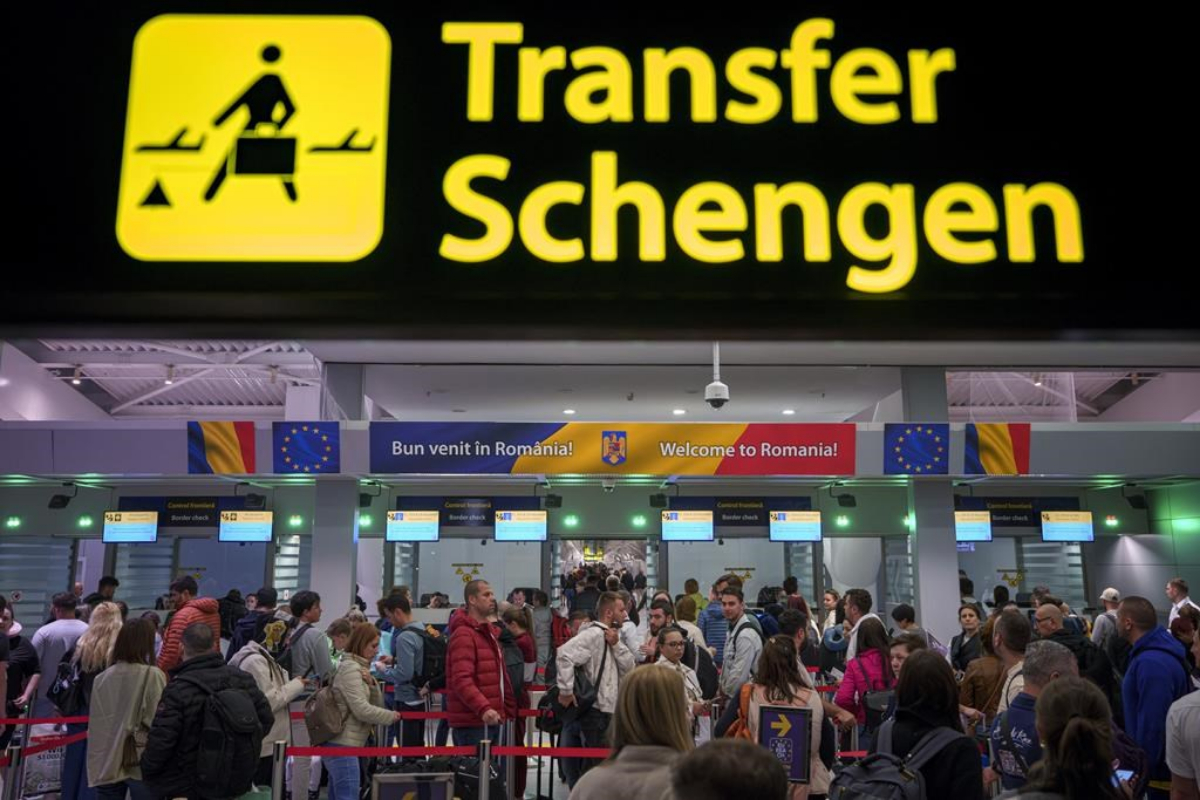- Bulgaria and Romania officially joined Schengen, allowing unrestricted travel by air and sea after 13 years.
- Austria vetoed the new status, limiting it to land routes due to concerns about potential asylum seekers.
- The lifting of controls at the air and sea borders holds significant symbolic value.
On Sunday, Bulgaria and Romania officially entered Europe’s extensive Schengen area of free movement, allowing for unrestricted travel by air and sea without border checks after a 13-year wait. However, a veto from Austria means that the new status will not extend to land routes, as Vienna voiced concerns regarding a potential influx of asylum seekers. Despite this partial membership, the lifting of controls at the air and sea borders of both countries holds significant symbolic value.
According to foreign policy analyst Stefan Popescu, admission to Schengen represents an “important milestone” for Bulgaria and Romania, symbolizing a “question of dignity, of belonging to the European Union.” He stated, “Any Romanian who had to walk down a lane separate from other European citizens felt being treated differently.”
Ivan Petrov, a 35-year-old Bulgarian marketing executive residing in France, expressed enthusiasm about experiencing less stressful traveling and the time he would save.
“This is a great success for both countries, and a historic moment for the Schengen area — the largest area of free movement in the world,” EU chief Ursula von der Leyen said in a statement Saturday.
“Together, we are building a stronger, more united Europe for all our citizens.”
With Bulgaria and Romania joining on Sunday, the Schengen zone will consist of 29 members — 25 of the 27 European Union member states, along with Switzerland, Norway, Iceland, and Liechtenstein.
Romania’s government announced that Schengen rules would be enforced at four seaports and 17 airports, with Otopeni airport near the capital Bucharest serving as the largest hub for Schengen flights.
The government announced that it would deploy additional staff, including border police and immigration officers, to airports to “support passengers and detect those who want to take advantage to leave Romania illegally.” The statement also mentioned that authorities would conduct random checks to apprehend individuals with false documents and to combat human trafficking.
Both Bulgaria and Romania aim to achieve full integration into Schengen by the end of the year, but Austria has so far only agreed to lift restrictions on air and sea routes.
Croatia, which joined the EU after Romania and Bulgaria, surpassed them to become Schengen’s 27th member in January 2023.
Established in 1985, the Schengen area enables more than 400 million people to travel freely without internal border controls.
While some have cause for celebration, truck drivers, confronted with endless queues at the borders with their European neighbors, feel excluded.
Earlier this month, one of Romania’s main road transport unions, the UNTRR, issued a call for “urgent measures” to achieve full Schengen integration, lamenting the significant financial losses incurred due to the lengthy waits.
[embedpost slug=”bulgaria-pledges-more-support-to-ukraine-with-weapons/”]




















